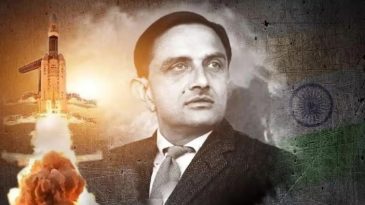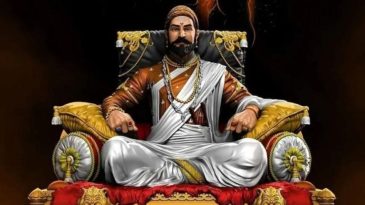- Wiki
- Updated on March 27, 2025
Vikram Sarabhai: The Father of the Indian Space Program
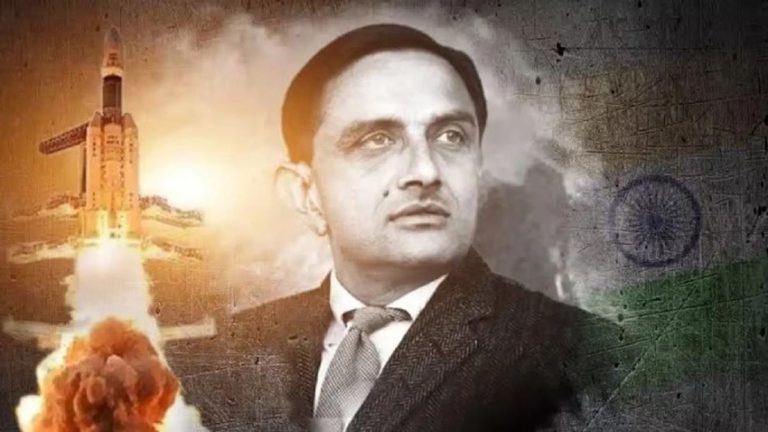
Vikram Sarabhai was a visionary, a scientist, and the driving force behind India’s entry into the space age. Referred to as the “Father of the Indian Space Program,” his contributions to space science and technology were groundbreaking and have had a lasting impact on India’s growth in science and technology. Sarabhai’s passion for space exploration and his commitment to using it for the betterment of society laid the foundation for India’s space journey, leading to the creation of institutions like the Indian Space Research Organisation (ISRO).
In this blog post, we will explore the life, achievements, and legacy of Vikram Sarabhai, as well as his role in shaping India’s space exploration efforts.
Early Life and Education
Vikram Sarabhai was born on August 12, 1919, in Ahmedabad, Gujarat, into a prominent family. His early education took place at the Gujarat College in Ahmedabad. Later, he studied at the University of Cambridge, where he earned a degree in natural sciences. Sarabhai was a brilliant student, deeply interested in science. His education wasn’t confined to textbooks. He was inspired by several great minds who would influence his path to space exploration.
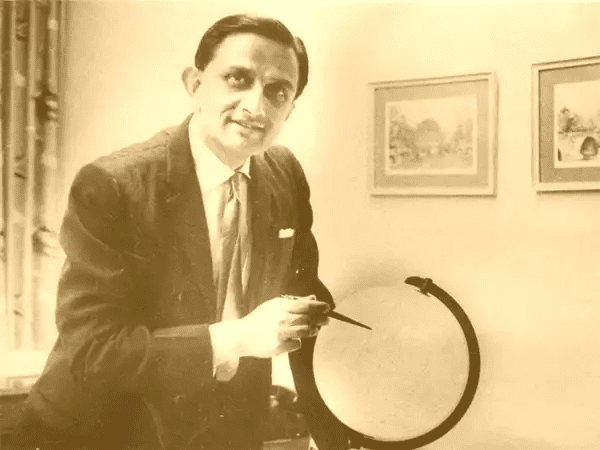
Sarabhai completed his doctorate in 1947 from the University of Cambridge, focusing on cosmic rays. His interest in space science began to grow during this period. After returning to India, he joined scientific research, where he would make significant contributions to space technology.
Vikram Sarabhai and the Birth of ISRO
Vikram Sarabhai’s most important contribution was in establishing India’s space program. At a time when space exploration was rare, Sarabhai was determined to bring India to the forefront. His vision was clear: space technology should help address India’s developmental needs, particularly in agriculture, communications, and education.
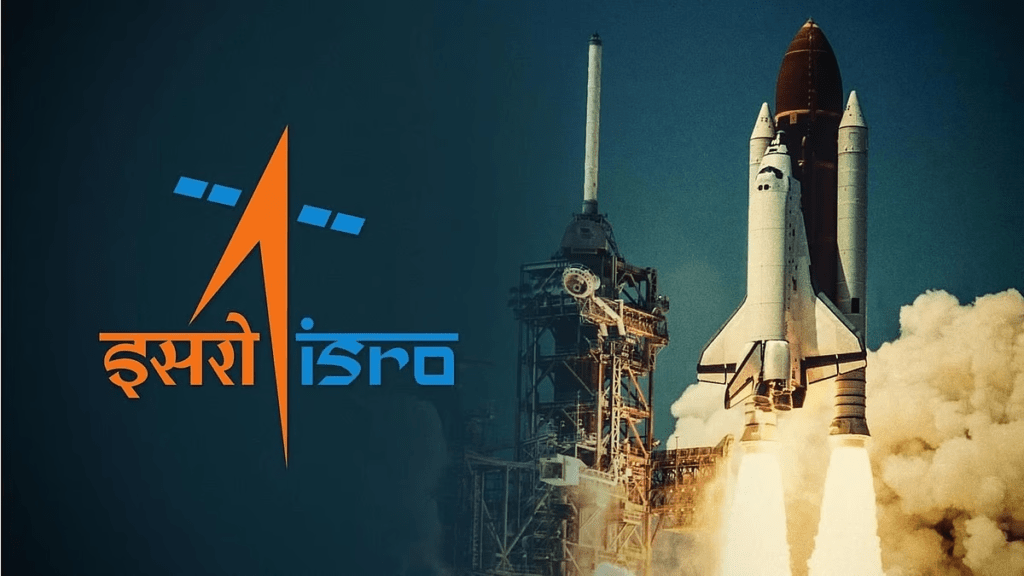
In the 1960s, during the height of the Cold War and the space race, Sarabhai’s idea began to take shape. In 1962, he led the formation of the Indian National Committee for Space Research (INCOSPAR), a committee focused on conducting space research and launching sounding rockets.
Sarabhai’s vision became a reality in 1969 with the creation of the Indian Space Research Organisation (ISRO). This was a major milestone in India’s scientific and technological history. ISRO was founded to harness space technology for national development and elevate India’s global standing in science.
Early Achievements and Milestones
Sarabhai’s leadership helped ISRO achieve significant progress in space technology. The development of indigenous satellites and rockets was one of the first major achievements. One of the key milestones was the successful launch of Aryabhata in 1975, India’s first satellite.
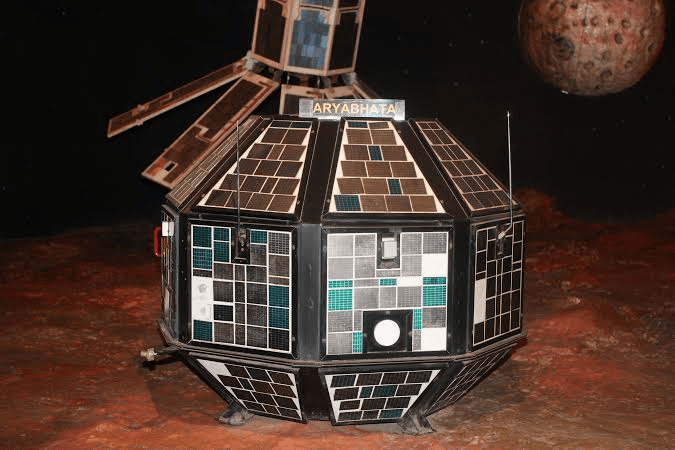
Sarabhai’s work with rockets was also foundational. In 1963, India launched its first sounding rocket, Nike-Apache, from Thumba, Kerala. This marked India’s first successful entry into space exploration. Sarabhai focused on using rockets for atmospheric research and cosmic radiation, which were important areas of study.
Beyond rocket launches, Sarabhai envisioned space technology applied to real-world challenges in India. He believed satellites could improve communications, aid agriculture, and support rural education. His goal was not just space exploration but using space to benefit everyday lives in India.
Contributions to the Indian Space Program
Sarabhai’s contributions extended far beyond the creation of ISRO. He worked to ensure India’s space program was self-reliant and focused on homegrown technologies. Some of his key contributions include:
The Development of the Satellite Launch Vehicle (SLV)
Sarabhai played a key role in developing the Satellite Launch Vehicle (SLV), which could place satellites into orbit. India’s first SLV was launched successfully in 1980, marking the beginning of India’s satellite program.
Advocacy for Space Technology in National Development
Sarabhai advocated for space technology to address issues faced by developing nations. He understood that India, with its large population and rural communities, could greatly benefit from space-based applications. He pushed for satellites to support education, weather forecasting, and rural communication. His vision was to apply space technology to improve society, not just to explore space.
The Indian National Satellite System (INSAT)
Sarabhai’s efforts led to the creation of the Indian National Satellite System (INSAT). INSAT revolutionized communication in India by enabling television transmission, telecommunication, and weather updates across the country. This initiative had a significant impact on millions of people in India, particularly in remote areas.
Promoting Global Cooperation in Space Research
Sarabhai also believed in global cooperation in space exploration. He promoted partnerships with other countries’ space agencies and supported India’s active participation in international space organizations. He was involved in the United Nations Committee on the Peaceful Uses of Outer Space (COPUOS), working towards global collaboration in space research.
Vikram Sarabhai’s Legacy
Vikram Sarabhai’s untimely death in 1971 left a gap in India’s space program, but his vision lives on. His work set the stage for future milestones, including the Mars Orbiter Mission (Mangalyaan) in 2013 and the Chandrayaan missions to the Moon. Today, India is a leading space-faring nation, and much of this success traces back to Sarabhai’s foundation.
Sarabhai’s belief in using space technology for societal development continues to shape ISRO’s mission. From satellite communications to disaster management and weather forecasting, Sarabhai’s vision still benefits millions in India. His contributions to space science weren’t limited to exploration; they focused on improving life for ordinary Indians.
Conclusion
Vikram Sarabhai’s contributions to India’s space program made him a national hero. His foresight, dedication, and leadership laid the foundation for India to become a global leader in space exploration. As the “Father of the Indian Space Program,” Sarabhai’s vision turned India into a space powerhouse. Today, ISRO continues to expand the boundaries of space science, and Sarabhai’s influence can be felt in every success. His legacy lives on through the growth of India’s space capabilities, which are still being used to improve lives and achieve new scientific milestones.
Also Read : APJ Abdul Kalam Inventions and Achievements
Join the discussion
Related Articles
No results available
ResetTrending Articles


- General
- Updated on January 24, 2026


- General
- Updated on January 21, 2026


- Health
- Updated on January 20, 2026


- General
- Updated on January 19, 2026


- General
- Updated on January 17, 2026


- General
- Updated on January 16, 2026


- General
- Updated on January 13, 2026


- Health
- Updated on January 9, 2026


- General
- Updated on January 7, 2026


- Health
- Updated on January 3, 2026
No results available
Reset

